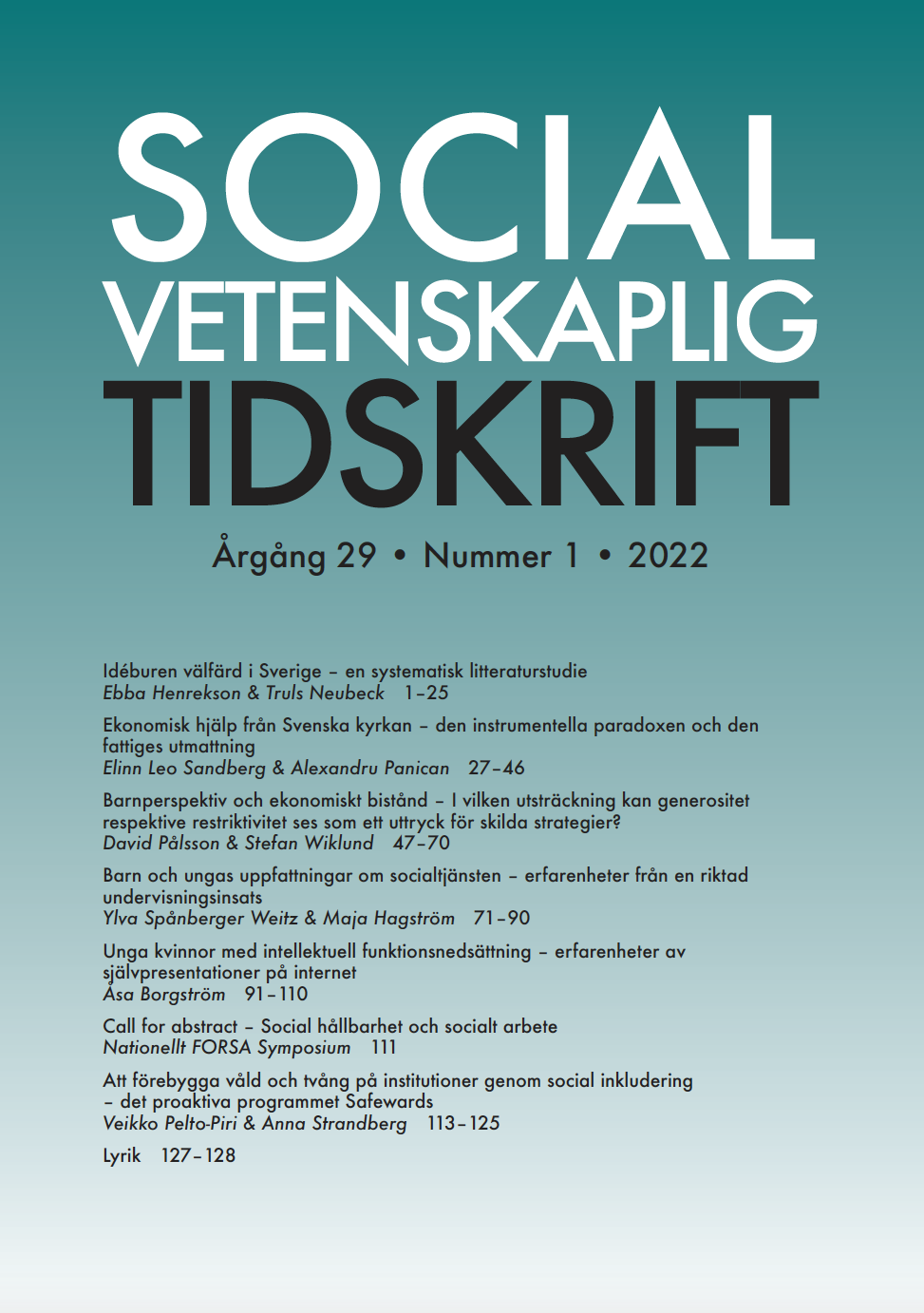Barnperspektiv och ekonomiskt bistånd
I vilken utsträckning kan generositet respektive restriktivitet ses som ett uttryck för skilda strategier?
Keywords:
Social assistance, Child perspective, Child povertyAbstract
In Sweden, welfare institutions are increasingly urged to acknowledge children in decision-making. An example is that central state authorities recommend that social assistance decision-making adopts the principle of a child perspective. However, it is not evident how a child perspective should be concretised in a traditionally adult-centered practice comparable to social assistance. This article builds on case studies of six municipalities which differ in terms of approval and economic generosity to households with children. In line with institutional theory, the concept child perspective is conceived as an idea that undergo translation at the local level. The aim of the article is to describe and analyse strategies and values of municipalities in relation to households with children and whether municipalities with low or high approval and economic generosity differ in any senses. The material consists of municipal guidelines, interviews (n=24) with social service representatives and information from case files of households with children (n=344). The main findings are that there are manifold translations of a child perspective in social assistance decision-making. At the same time, the actual work methods to a surprisingly small degree focuses children and it can be debated whether the identified working methods impact children’s predicaments. Further, differences between the municipalities are overall small. In the concluding discussion, findings are related to theory and we tentatively reason about the (albeit small) differences between municipalities.
Downloads
Published
How to Cite
Issue
Section
License
Copyright (c) 2022 David Pålsson, Stefan Wiklund

This work is licensed under a Creative Commons Attribution 4.0 International License.
Allt material i Socialvetenskaplig tidskrift publiceras sedan 2022 (Vol 28 Nr 2) med omedelbar öppen tillgång (open access), under Creative Commons-licensen CC BY 4.0. Upphovsrätten till innehållet tillhör respektive författare.
Allt innehåll i tidskriften är fritt tillgängligt utan kostnad och får fritt läsas, laddas ned, kopieras, delas, skrivas ut och länkas. När innehållet används måste författare, källa och licens anges. Författaren kan fritt göra sin publicerade text tillgänglig på institutionella och internetbaserade arkiv, exempelvis sitt lärosätes digitala arkiv eller andra tjänster för detta.
Inga publiceringsavgifter tas ut vid publicering i Socialvetenskaplig tidskrift.


